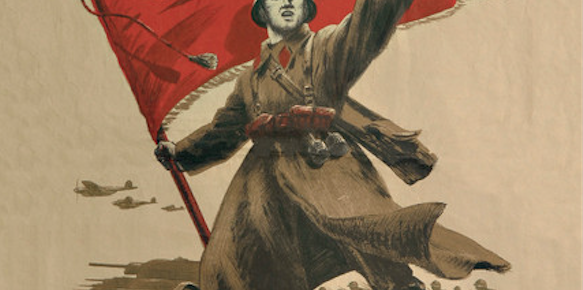
When asked to write a post on The Red Army and the Second World War, I decided to write on an aspect of the book with which I am – and particularly after the dust has settled on the writing process – pleased. One dimension of The Red Army and the Second World War with which I am particularly satisfied is the extent to which individual testimony both informs and illustrates the arguments and narrative within it. In preparation for and when writing this book I read a substantial number of memoirs and pieces of eyewitness testimony from those of generals all the way down to rank- and-file Red Army men and women. Some of these were written during the Soviet period, some in the aftermath of the collapse of the Soviet Union – but all had something meaningful to contribute. Some of the material was simply useful in reinforcing or challenge detailed information gained from archival materials. Even within the most heavily edited Soviet memoirs written after the relative openness of the ‘thaw’ period small details of little concern to the ‘censors’ and often mentioned in passing like when the unit received a new piece of equipment or the age and geographical origins of replacement troops could be of considerable value. The value of such small nuggets increased dramatically when reading tens of memoirs and other pieces of testimony and where it became apparent that something of interest was far from the exception. The many memoirs published after the collapse of the Soviet Union– although frequently written much earlier – often added an additional dimension of value in offering critical material not typically contained within those published during the Soviet period. Such memoirs were it seems more often than not written by individuals whose motives were not to undermine the wider portrayal of the war of the Soviet period but to set the record straight on particular episodes in which they had been involved. Such ‘frontline’ insights are extremely valuable.
I am now aware that as a younger academic when writing my first couple of books I gave too little attention to individuals in my writing, and particularly those lower down the chain of command. Back then I was of the mind that serious historians did not wallow in the individual experience – the stuff of popular history. Careers were established on the basis of use of archival sources, which are obviously crucial but often lack some of the nuance that can be picked up from the memoir literature. I have also to admit that back when I was a younger academic reading memoirs and personal accounts could be uncomfortably distressing, and particularly so to someone trying to shore up easily undermined notions of one’s own invincibility. War is typically nasty – and it was simply safer and easier to deal with official reports and assessments from a variety of often competing organisations and not be distracted by individual pain, suffering and misfortune.
A little older, with kids, and no longer with the pretence of personal invincibility of youth, the human interest component to memoirs has a far more obvious value to me in putting the wider events in the context of the individual. When used appropriately the human interest material can tell us so much for example about what motivated those involved to do what they did, with patterns starting to emerge when reading many examples even if we have always to be on the lookout for what seems to be retrospective explanation and justification. As work on The Red Army and the Second World War progressed I increasingly appreciated the extent to which it is possible to get much closer to the human experience and suffering of the war through the memoir literature than one can through aggregate reports from those monitoring the troops alone in order to get a better feel for the sort psychological factors that influenced military effectiveness at the grass roots level.
Overall, the researching and writing of The Red Army and the Second World War was not only an intellectually satisfying process, but it was also a humbling experience to engage with the testimonies of so many who had experienced, suffered and achieved so much in circumstances most of us are fortunate not to have lived through. My aim was that The Red Army and the Second World War makes use of the memoir literature to an extent that many similar works on the Soviet Union at war do not in order to not only strengthen the analysis, but offer an engaging read. I hope that readers find that to be the case!
Latest Comments
Have your say!